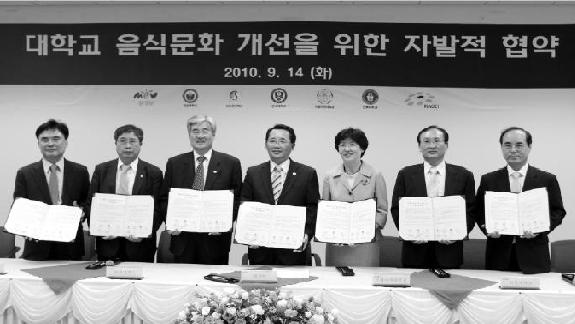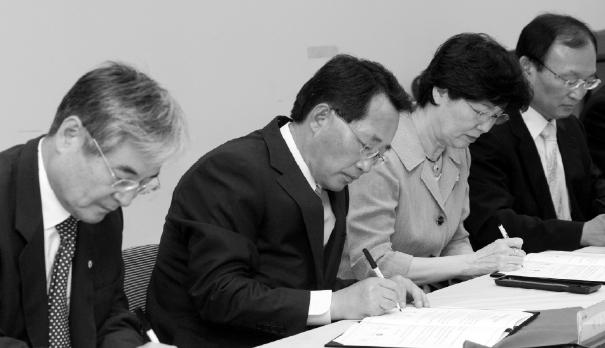
The Ministry of Environment has practiced many businesses to reduce waste, such as implementing exhibitions since 2003. This project, which is held in these five selected universities, is this year’s new business that the Ministry of Environment is sponsoring.
The five schools are going to conduct different events and plans in order to activate the works. In the case of Ewha, there will be two big changes.
First, the school will try to promote the matter of reducing food waste, in order to help students become aware of the problem that they are facing.

“The Ministry of Environment also agrees that the university students’ critical thinking on this subject is crucial in helping the society as a whole. We will work to promote electronic displays on such matters so that this campaign can raise the students’ consciousness on the matter,” said Kim Hye-kyung from the Office of General Affairs. The Office of General Affairs will ask the Career Development Center to discuss this topic on the list of the Leadership class, so that students can perform the activities voluntarily.
“We thought that compulsory enforcements will only make the students feel overwhelmed by pressures. We hope that students will continue to minimize the amount of food waste by themselves,” Kim added.
More changes will be done by the companies that actually run the student cafeterias. The two companies, Shinsegae Food and Our Home, each taking part at the cafeterias in Human Ecology Building and the Hanwoori Hall, will be presenting the graphs that will visually show the amount of food wasted every day.
Also, the companies will try to figure out the preferences of students according to the data that have been stocked in the past. Moreover, they will purchase the raw materials that will produce less waste, and divide up the time periods of cooking food into every 30 minutes, in order to reduce the surmounting increase of leftovers.
“Cooking with time differences will be beneficial, not just that we can reduce the amount of leftovers, but also that the students will have more recently made meals,” said Park Kyung-ju, a staff member of the welfare center in Hanwoori Hall.
“We will also enforce the coupon system in student cafeterias, where students can get merits whenever they finish their meals without leftovers,” Kim said.
According to the statistics from the Ministry of Environment, the cost for disposal of food waste marked a recorded high of 635 billion won last year, calling forth the attention and effort of the nation as a whole.
“Students are the ones who hold the key to reducing nationwide food waste,” said Professor Park Seok-soon (Environmental Science and Engineering).
“Every environmental problem comes back to the future generations, which are the current students and their descendants. It is the students’ job to take the lead to change erroneous habits or culture,” Park said. “If students don’t eat between meals, they can finish the entire meal without leftovers,” Park added.

